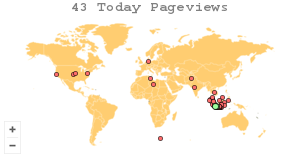THE DIMENSION OF HUMANITY IN THE KORAN AND HADITH
DOI:
https://doi.org/10.47498/bashair.v2i2.1366Keywords:
Humanity, Legal Criteria, Quran and HadithAbstract
The scholars agreed that the Quran is the primary source of Islamic law. On the one hand, the Quran's verses, particularly those dealing with the law, are extremely limited. Human deeds related to the law, on the other hand, continue to evolve. As a result, it is clear that there are human actions for which there is no explicit rule of law in the Quran. According to the author of this article, development steps are required because the Koran states that its presence is for human guidance in various aspects. In the form of a study of criteria in order to develop the deeds mentioned in the Koran. The author of this article attempts to explain and analyze the dimensions of humanity in the Koran in relation to human deeds using a lughawi approach and the principles of al-wadh'u, al-isti'm â l, and al-â mlu.
References
Awdah, Abd al-Qâdir, al-Islâm wa Awdhâ‘unâ al-Qânûniyah, , (Beirut: Muassasah al-Risalah, 1982.
Azîz, Abd al-Ghaffar, al-Islâm al-Siyâsî bayna al-Râfidhinâ lahu wa al- Mughâlinâ fîhi, T.tp: Dâr al-Haqîqah li al-„Ilm al-Dawlî, 1989.
Al-Daraynî, Fathi, Khashâ’is al-Tasyrî‘ al-Islâmî fî al-Siyâsah wa al-Hukm, Beirut: Muassasah al-Risâlah, 1982.
Alkalali, Asad M, Kamus Indonesia Arab, Jakarta: Bulan Bintang, 1987.
Al-Khumayni, Ayatullah Ruhullah, Tahzîb al-Uhsûl, (Iran: Muassasah al- Nasyr al-Islâmî, 1405 H.
Al-Qardhawî, Yûsuf, Syarî‘at al-Islâm Shâlihah li al-Tathbîq fī kull Zamân wa Makân, Kairo: Maktabah Wahbah, 1997.
Al-Qorafi, Syihâb al-Dîn Abû al-Abbâs Aḥmad bin Idrîs, Syarḥ Tanqîḥ al-Fushûl fî Ikhtishâr al-Maḥshûl fî al-Ushûl, Beirût: Dâr al-Fikr, 1973.
Al-Sadlân, Shâlih bin Ghanîm, Wujûb Tathbîq al-Syari‘ah al-Islâmiyah fî kull ‘Ashr, edisi Indonesia terj. Kathur Suhardi, Aplikasi Syari’at Islam, Jakarta: Darul Falah, 2002.
Al-Sâys, Muhammad „Ali, Târîkh al-Fiqh al-Islâmî, Kairo: Muhammad „Ali Shabîh, t.th.
Amir Syarifuddin, Pengertian dan Sumber Hukum Islam, dalam Zaini Muchtarom (et.el), Filsafat Hukum Islam, Jakarta: Bumi Aksara, 1992.
Fazlur Rahman, Islam, Islam, Bandung: Pustaka, 1989.
Juhaya S. Praja, Filsafat Hukum Islam, Bandung: Pusat Penerbitan Universitas, 2002.
Rif’at, Muhammad Jamâl al-Dîn, Adab al-Mujtama’ fî al-Islâm, Qathr: Idârah Ihyâ‟ al-Turrâts al-Islâmî, t,th.
Sachedina, Abdulaziz Abdulhussein, The Just Ruler (al-sultān al-‘ādil) in Shī‘ite Islam, New York: Oxford University Press, 1988.
Syamsul Anwar, Hukum Perjanjian Syari‘ah: Studi tentang Teori Akad dalam Fikih Muamalat, Jakarta: Raja Grafindo Perkasa, 2007.
Thabbârah, Afîf Abd al-Fattâh, Rûh al-Dîn al-Islâmî, Beirût: Dâr al-„Ilm li al-Malâyîn, 1985.
Tim Penyusun, Kamus Besar Bahasa Indonesia, Jakarta: Balai Pustaka, 1990.
Wafî, Ali Abd al-Wâhid, al-Musâwah fî al-Islâm, Arab Saudi: Maktabah Ukkâzh, 1983.
Downloads
Published
Issue
Section
License
Authors who publish articles in Basha'ir: Jurnal Studi Al-Qur'an & Tafsir agree to the following conditions:
- The author retains copyright and grants the Basha'ir Journal the right from the first publication with the work simultaneously licensed under a Creative Commons Attribution-ShareAlike 4.0 International (CC BY-SA 4.0) license that allows others to make changes, adjust and build on the work with recognition of the author's work and initial publication in the Journal.
- Authors are allowed to copy and redistribute published versions of works in journals (for example, posting them to institutional repositories or publishing them in a book), with recognition of their initial publication in Basha'ir: Jurnal Studi Al-Qur'an & Tafsir.
- Authors are allowed and encouraged to post their work online (for example, in institutional repositories or on their websites) before and during the submission process, as it can lead to productive exchanges, and increase citations of published works






